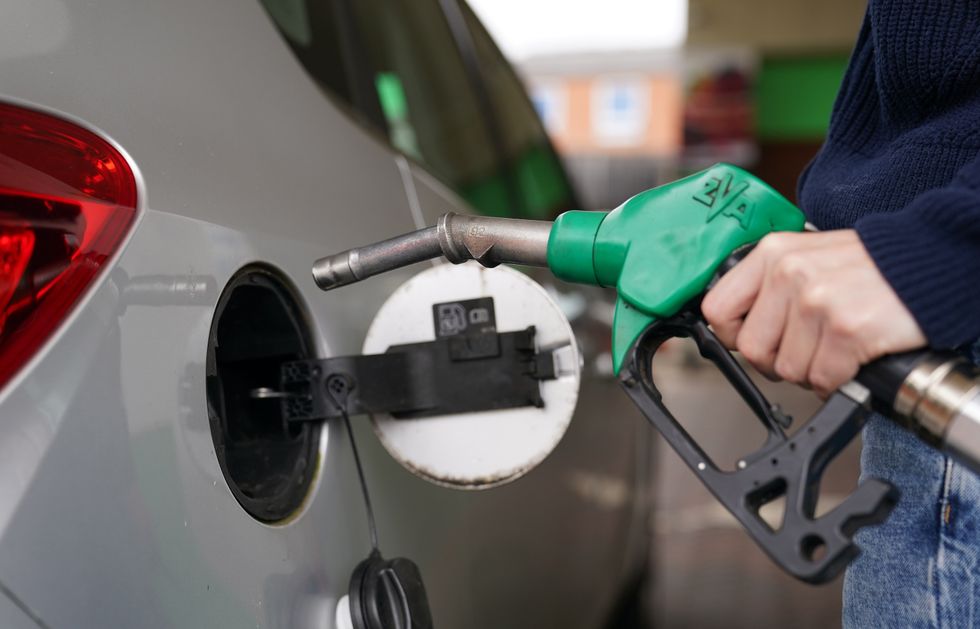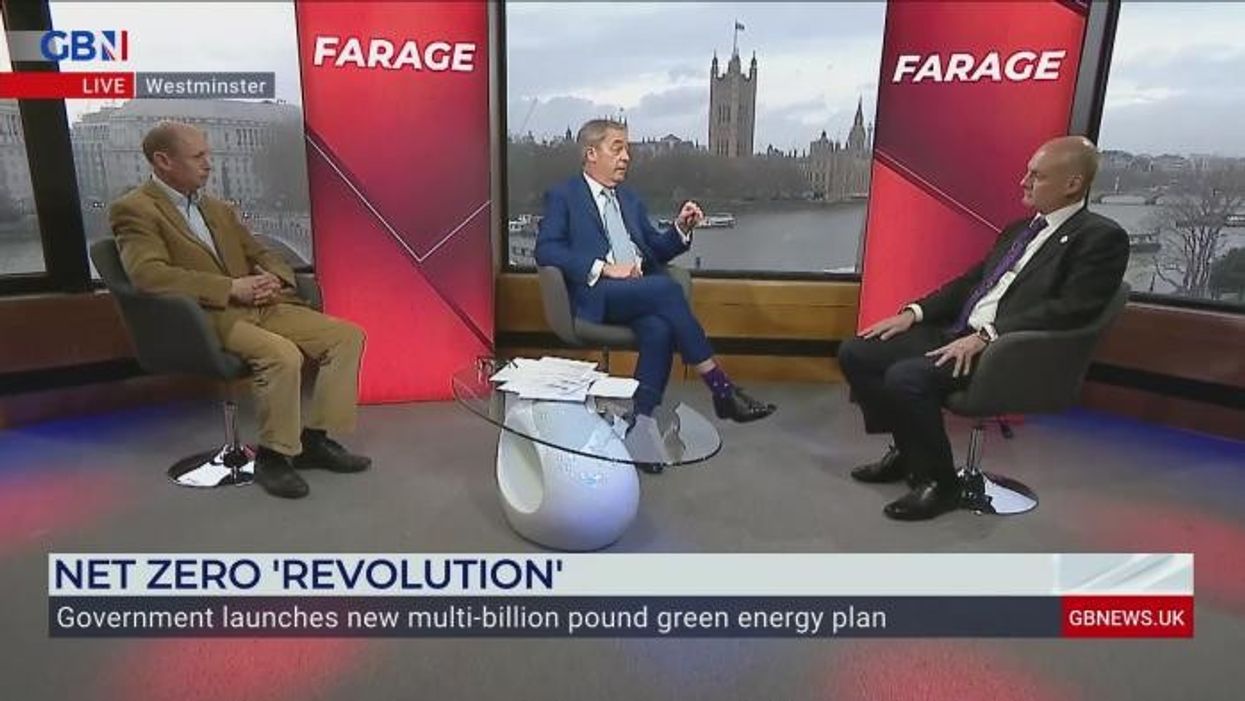‘I can’t believe I’m saying this!’ - Nigel Farage suggests EU's electric car policy makes more sense than UK's
It comes as Energy Security and Net Zero Secretary Grant Shapps announced a £3bn package to drive projects across the UK
Don't Miss
Most Read
Nigel Farage has suggested the EU’s green energy plan makes more sense than the UK’s.
It comes as Energy Security and Net Zero Secretary Grant Shapps announced a £3bn package to drive projects across the UK to help a drive for green energy.
A key component of the UK’s green energy plan is the UK’s commitment to electric vehicles post-2030, with Grant Shapps today reaffirming the plan.
Speaking on GB News, Nigel Farage admitted the institution he is highly critical of is showing more sense than the UK on the issue.

Nigel Farage says the EU's policy on electric vehicles could be better than the UK's
GB News / PA
He said: “This week, the European Union, and I was there for many years inside their Parliament, decided that actually post-2035, internal combustion engines can still be made.
“I think Mercedes and some of the big German industry wanted it, but they will use E-fuels.
“We today with Grant Shapps are still committed to all cars after 2030 being electric vehicles.
“I think in Beijing, they are absolutely cheering to the rafters because they will dominate the electric car market.

Under current plans, diesel cars will no longer be developed in the UK post-2030
PA“Whatever your views are on CO2, and I can’t believe I’m saying this, but don’t you think the EU are showing more realism on this issue than Grant Shapps?”
In response to the question put forward by the former Brexit Party leader, Bob Ward from the Grantham Institute claimed the EU has been subject to intense lobbying from the car manufacturing industry.
He told Nigel Farage: “I think the EU have caved into lobbying by more vested interests.
“German car manufacturers have said we think electric vehicles are going to be the main part of it but we want the opportunity to build these vehicles built by E-fuels.
“Americans have made a bet in the electric vehicle market, they’ve made a massive investment in it, they’re attracting business from the UK and China believe in electric vehicles.
“We’re going to have a battle here, the question is, whether you think Chinese and American electric vehicle manufacturers are going to win out over Europeans and where we should be.
“I’m happy either way, but I don’t think the answer should be we should slow down on phasing out electric and diesel vehicles.”
It comes as the Government today (March 30) announced £381m of funding for new ‘local’ electric car chargers.
Revealed as part of a wider ‘transport decarbonisation’ package, the government has set up the £381m ‘local electric vehicle infrastructure (LEVI) fund. An additional £15m has also been put aside for residential on-street chargers.
The government said that the two schemes will ‘support the installation of tens and thousands of new chargers across the country’.
Each region is allocated a set amount of money to put towards new chargers, with the South East receiving the most at £54m, while the North East is receiving £22m. The money is also split into local authorities, with London receiving by far the largest share of funds with £36m. Rutland will receive the smallest share of £257,000.
Technology and decarbonisation minister Jesse Norman said: “As today’s announcements show, the government is doing more than ever to help the UK move away from petrol and diesel and towards electric vehicles.
“That means investing in charging infrastructure and giving a clear direction to manufacturers, so they can roll out new electric vehicles faster and more efficiently. Overall, the UK is leading the way in decarbonising transport, a sector that is one of the biggest contributors to greenhouse gases.”








